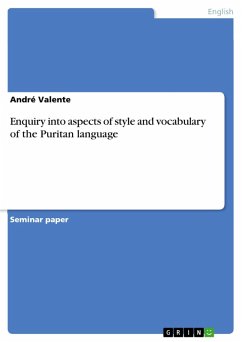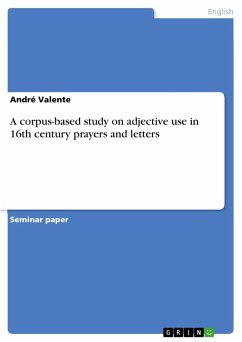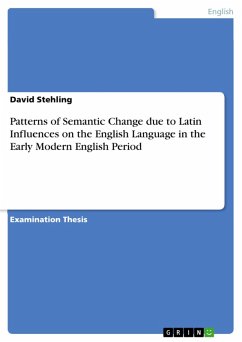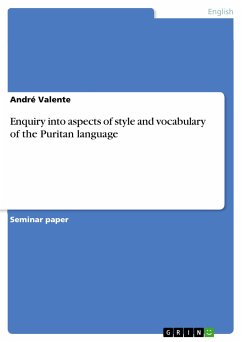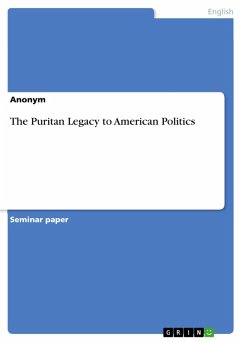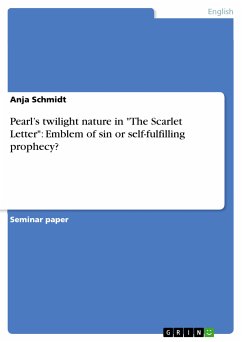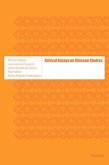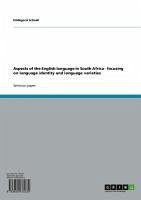Seminar paper from the year 2008 in the subject English Language and Literature Studies - Linguistics, grade: 1,0, University of Cologne, course: Early Modern English, language: English, abstract: During the Early Modern English period, the Puritans in England developed certain language usages of their own that were mainly on the lexical level. Their language showed variation especially in the vocabulary (Barber 1997: 23). In the standard work Early Modern English by Charles Barber, he claims that repetition is probably a feature of Puritan public speech and takes as a foundation a character from Ben Jonson's play Bartholomew Fair (1997: 24). So the first aim of this paper is to prove or refute Barber's assertion that Puritans used the stylistic device of repetition in public speaking. The second aim of this paper is to find out to what extent the Puritans used their vocabulary in different literary genres. There will also be a short explanation of the meaning of Puritan words that are found in the text. This aspect cannot be considered in full detail as it would go beyond the scope of this paper. Furthermore, the paper will comment on whether the depiction of Puritans in 16th and 17th century drama is realistic concerning the use of Puritan vocabulary and repetition of words and phrases. Van Beek writes in An enquiry into puritan vocabulary, which served as a main source for this paper, that there had hardly been done any similar work on the Puritan vocabulary before his study (1969: 5). According to the online bibliography of the Modern Language Association (MLA), there have not been published any similar studies from 1969 till today. In fact, there are only some references to Puritan vocabulary in larger studies, e.g. in the latest books on Early Modern English by Manfred Görlach and Barber's above mentioned work from 1997. However, they also do not look closely at some specific features of their vocabulary. The only detailed study on a particular aspect of the Puritan vocabulary is Die Self-Komposita der Puritanersprache by Karl Waentig dated 1932. One can say that there has not been done any quantitative research so far on the Puritan vocabulary in the Early Modern period. Concerning the other interest of this paper one can also say that there has not been done research on the repetition of words and phrases in Puritan public speech.
Dieser Download kann aus rechtlichen Gründen nur mit Rechnungsadresse in A, B, BG, CY, CZ, D, DK, EW, E, FIN, F, GR, HR, H, IRL, I, LT, L, LR, M, NL, PL, P, R, S, SLO, SK ausgeliefert werden.

